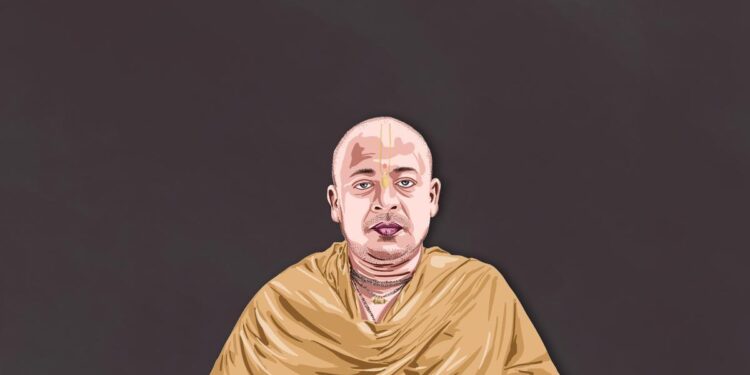Bangladesh’s Judicial Bail for Chinmoy Krishna Das: A Turning Point for Minority Rights
Examining the Legal Landscape Behind Chinmoy Krishna Das’s Bail
The High Court of Bangladesh recently made a landmark decision by granting bail to Chinmoy Krishna Das, a leading advocate for minority communities. This ruling not only reflects the complexities within Bangladesh’s judicial system but also highlights ongoing tensions between legal principles and political influences. While the judiciary is ideally an impartial arbiter, cases like Das’s reveal how legal processes can be deeply intertwined with societal and governmental pressures.
Das was detained during a demonstration advocating for minority rights, sparking widespread debate about civil liberties in Bangladesh. His release on bail has ignited discussions around several critical facets of the country’s justice system:
- Judicial Autonomy: The extent to which courts can operate independently from political interference remains under scrutiny.
- Protection of Minority Groups: The case underscores ongoing challenges minorities face in securing their rights under national law.
- Societal Attitudes Toward Activism: Public opinion on activists’ legal treatment may influence future rulings and shape the environment for dissenting voices.
| Key Element | Description |
|---|---|
| Incident Background | The arrest occurred amid protests demanding enhanced protections for marginalized communities. |
| Bail Outcome | The High Court’s intervention came as part of broader conversations about safeguarding civil freedoms. |
| Potential Consequences | This decision could pave the way toward stronger judicial safeguards for minority representation moving forward. |
The Broader Effects of Government Crackdowns on Minority Advocacy in Bangladesh
The situation surrounding Chinmoy Krishna Das exemplifies a wider pattern where state authorities have increasingly employed repressive tactics against those voicing minority concerns. Although his bail signals some relief, it is crucial to recognize that systemic efforts continue to curtail freedom of expression among vulnerable groups. Such suppression threatens democratic values and erodes social pluralism essential to national cohesion.
A range of strategies have been observed that contribute to this climate of intimidation and exclusion:
- Censorship Practices: Media outlets often face pressure limiting their coverage on issues affecting minorities, reducing public awareness and discourse.
- Lawsuits & Harassment: Human rights defenders frequently encounter arbitrary arrests or legal harassment; recent reports indicate over 150 such cases filed against activists since early 2023 alone.[1]
- Marginalization Within Society: Many minority groups experience social isolation due to discriminatory policies or societal biases that exclude them from mainstream platforms and opportunities.
[1] Source: Human Rights Watch Report, March 2024
This systematic marginalization not only infringes upon individual liberties but also weakens society’s collective strength by silencing diverse perspectives vital for progress. It is imperative that both domestic actors and international stakeholders intensify efforts supporting inclusive dialogue and protection mechanisms against such repression.
Global Initiatives: Strengthening Support Networks for Marginalized Communities in Bangladesh
The unfolding events surrounding Chinmoy Krishna Das highlight an urgent need for coordinated international advocacy aimed at bolstering human rights protections within Bangladesh. To effectively counteract growing repression targeting minorities, global organizations should consider adopting comprehensive strategies including:
- Create Stronger Partnerships: Fostering collaboration between local grassroots movements and international NGOs can amplify marginalized voices while pooling resources efficiently.
- Aim Focused Awareness Campaigns: Tapping into digital platforms alongside traditional media channels helps spotlight human rights violations faced by minorities—mobilizing global public opinion.
- Sustain Financial Backing: Dedicating funds towards organizations actively defending vulnerable populations ensures they remain equipped with necessary tools—from legal aid services to community outreach programs.
- Liaise With Policy Makers: Pursuing diplomatic engagement encourages governments like Dhaka’s administration to adhere strictly to internationally recognized human rights conventions.[2]
| Recommended Actions | Description | |
|---|---|---|
| Systematic Documentation | Gather detailed accounts from affected individuals enabling credible reporting mechanisms. < / td > | |
| Coordinate pressure through UN bodies or regional coalitions holding authorities responsible.< / td > | ||
| Host webinars, panel discussions & forums raising awareness globally fostering solidarity.< / td > |















